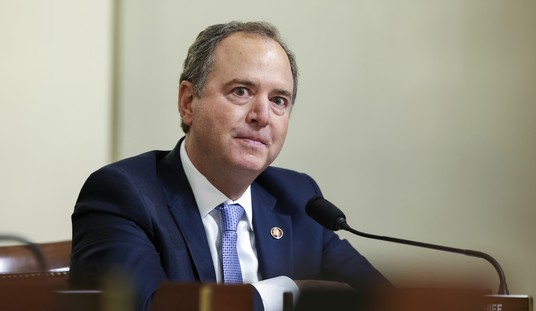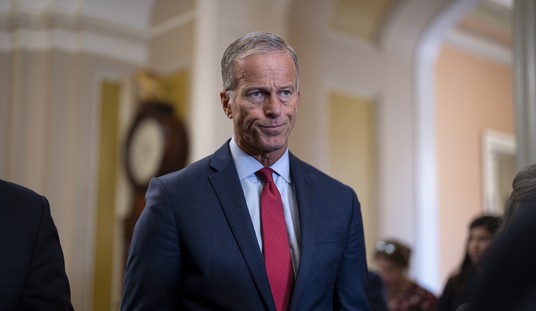Right now, unless you live in Washington, you’re probably unaware of the ongoing free commercial advertisement for Wisconsin-style collective bargaining reforms nationwide. Teachers in Seattle have thrown the plans of tens of thousands of parents into absolute chaos as it was announced last night that the first day of school would be cancelled today due to a teacher strike.
One of the key problems with the strike is that it’s difficult to know who is asking for what. Certainly, there are dollar figures involved in terms of salary, but the teachers’ union insists that this is not about money, it’s about other amorphous things they are allegedly asking for:
The strike in Washington state’s largest school district sent parents scrambling to find alternative options, including working from home, swapping care with other parents or signing up for other programs. The city parks department expanded before- and after-school programs to all-day offerings amid the strike in the district serving about 53,000 students.
It came after Seattle Public Schools and the teachers union failed to reach an agreement on their contract Tuesday night. Both sides remain far apart on key issues, including pay raises, teacher evaluations and the length of the school day.
The district has offered a pay increase of nearly 9 percent over three years, and the union countered with a 10.5 percent increase over two years. Phyllis Campano, the union’s vice president, said the district came back with a proposal that the union “couldn’t take seriously.”
This, of course, is the public tactic that teachers’ unions always take – to disclaim that it’s all or even mostly about money (even though, in this case, they are definitely arguing about salary). And there is evidence that the public regularly buys these claims.
But the reality is that everything the teachers’ union is asking for is ultimately about money or at least can be monetized. Asking to have the length of the school day reduced (for the same pay) means, essentially, that teachers’ labor costs more. Likewise, other things that are typically under dispute concern allegedly non-monetary items but which also ultimately cost money – as all benefits do to their employer. In this case, the Seattle teachers have also added other nightmares to the bargaining table such as complaints about their evaluations and being held to accountability.
This is part of the reason that the teachers’ unions fought so hard against reforms like Act 10 in Wisconsin – the act did not prohibit collective bargaining, but rather prohibited it on any basis other than salary. To the extent that teachers want additional benefits, of course they can purchase those with additional salary, but they have to ask for the salary, which becomes a part of the public negotiation.
This directly harms teachers’ unions’ favorite public ploy – pleading poverty based on their bottom line salary while actually receiving a whole heck of a lot of monetary value in non-salary compensation. In the first place, teachers in Washington make on average $64,000 a year in absolute salary including local contracts, which is not shabby at all for a non-specialized job that requires a bachelor’s degree, and especially for one that comes with a three month vacation (in addition to automatic time off for Christmas, etc.) which provides an opportunity for industrious teachers to earn yet more compensation with their free time.
In fact, teacher compensation based on salary alone is much higher on a per-hour basis than other jobs with similar professional requirements:
Of course, simple annual salary data do not furnish a full portrayal of teachers’ monetary compensation, in large part because they do not account for actual time worked. With school calendars featuring many built-in breaks, and school days averaging around just 6.5 hours in length, it is reasonable to expect that teachers work fewer hours for their salaries than do other professionals. Recent analyses of Bureau of Labor Statistics data taken from the National Compensation Survey confirm this. Looking at 2001 data, economist Richard Vedder compared teachers’ hourly earnings to those of numerous professionals and found that nationwide, teachers out-earned architects, mechanical engineers, biological and life scientists, and several other professionals. In 2000, the average hourly wage for a job defined as a “professional specialty” by the BLS was $27.49, while the average wage for elementary-school teachers was $28.79, secondary-school teachers $29.14, and special-education teachers $29.97.5 Using 2005 NCS data, the Manhattan Institute’s Jay Greene and Marcus Winters examined hourly teacher pay and arrived at similar findings. They discovered that the average public school teacher made $34.06 per-hour in 2005, 11 percent more than the average professional specialty and technical worker.
This also ignores the (probably more important) hidden ways that teachers have collectively bargained their way into very good financial position in ways that often occur outside of typical analysis:
- Pension programs for public-school teachers are significantly more generous than the typical private-sector retirement plan, but this generosity is hidden by public-sector accounting practices that allow lower employer contributions than a private-sector plan promising the same retirement benefits.
- Most teachers accrue generous retiree health benefits as they work, but retiree health care is excluded from Bureau of Labor Statistics benefits data and thus frequently overlooked. While rarely offered in the private sector, retiree health coverage for teachers is worth roughly an additional 10 percent of wages.
- Job security for teachers is considerably greater than in comparable professions. Using a model to calculate the welfare value of job security, we find that job security for typical teachers is worth about an extra 1 percent of wages, rising to 8.6 percent when considering that extra job security protects a premium paid in terms of salaries and benefits.
We conclude that public-school-teacher salaries are comparable to those paid to similarly skilled private-sector workers, but that more generous fringe benefits for public-school teachers, including greater job security, make total compensation 52 percent greater than fair market levels, equivalent to more than $120 billion overcharged to taxpayers each year. Teacher compensation could therefore be reduced with only minor effects on recruitment and retention. Alternatively, teachers who are more effective at raising student achievement might be hired at comparable cost.
These “hidden costs,” which the teachers’ unions have become masters of bargaining for, hide the truth of what teachers are asking for in terms of compensation and furthermore become onerous burdens on state budgets when teachers retire and begin to draw their pensions.
Right now, Seattle teachers are using these levers as part of their PR campaign while tens of thousands of parents today are scrambling to find alternate arrangements for their kids on the first day of school, some of whom have been forced to stay home from their own jobs.
Remember that this could very well happen to you if your state hasn’t enacted collective bargaining reforms to prevent teachers’ unions from holding their school districts hostage while pleading poverty.














Join the conversation as a VIP Member